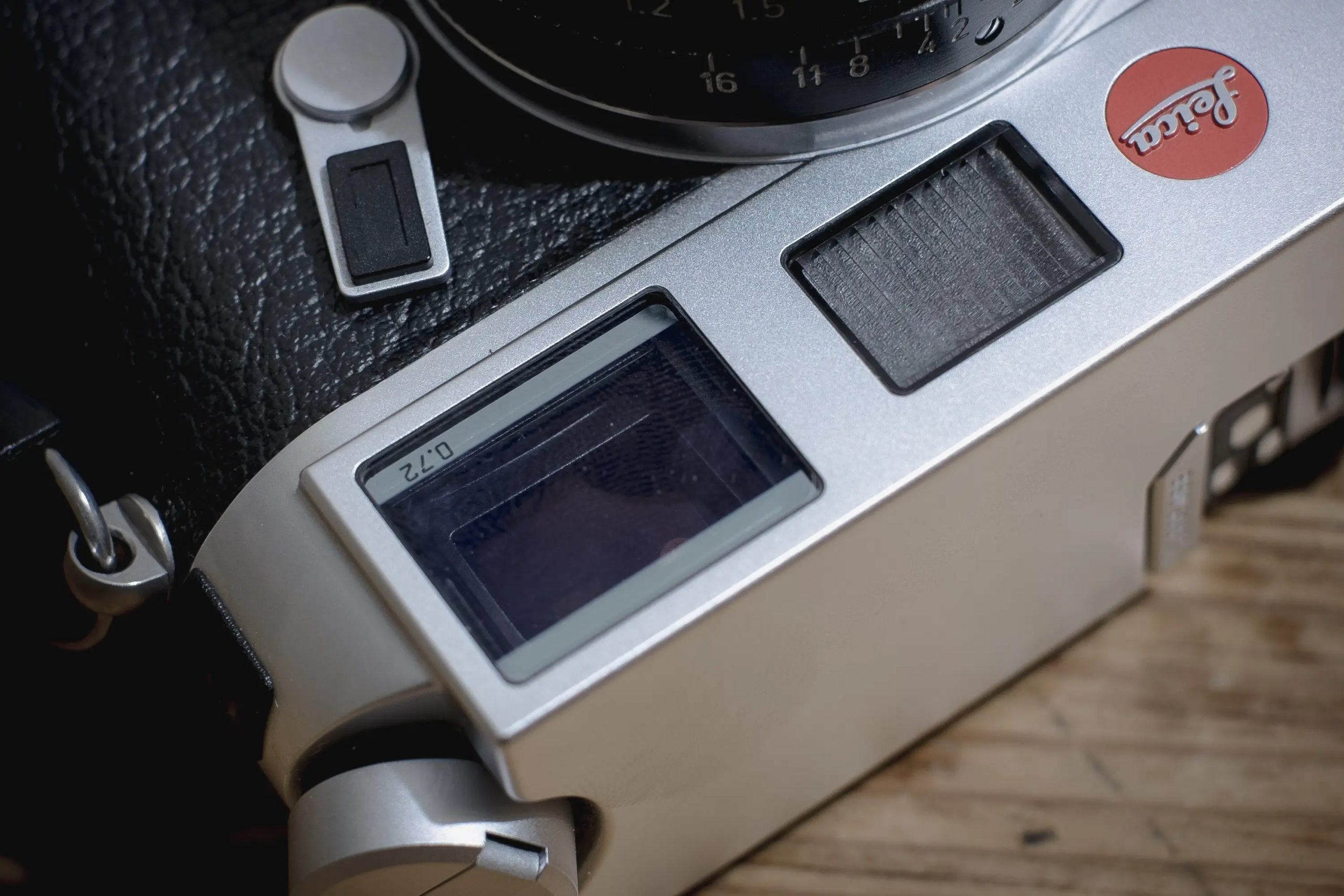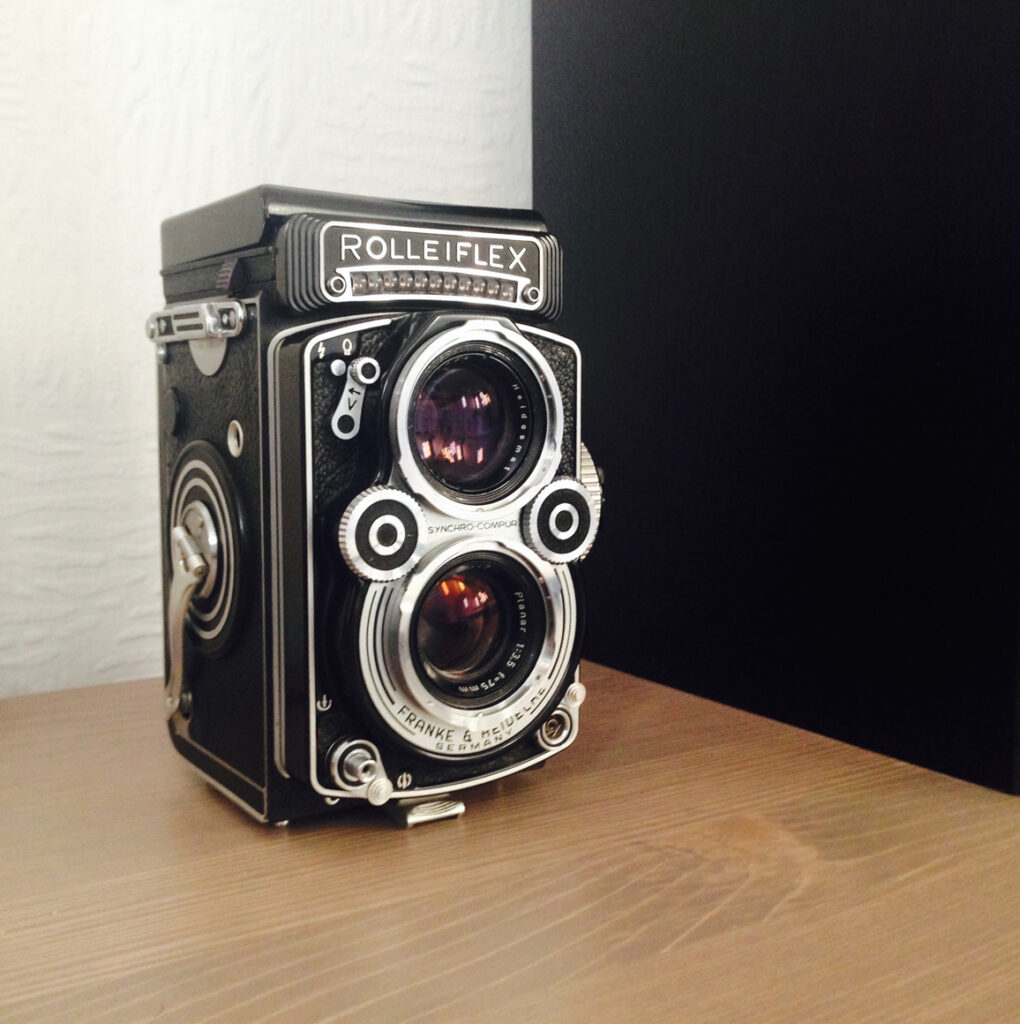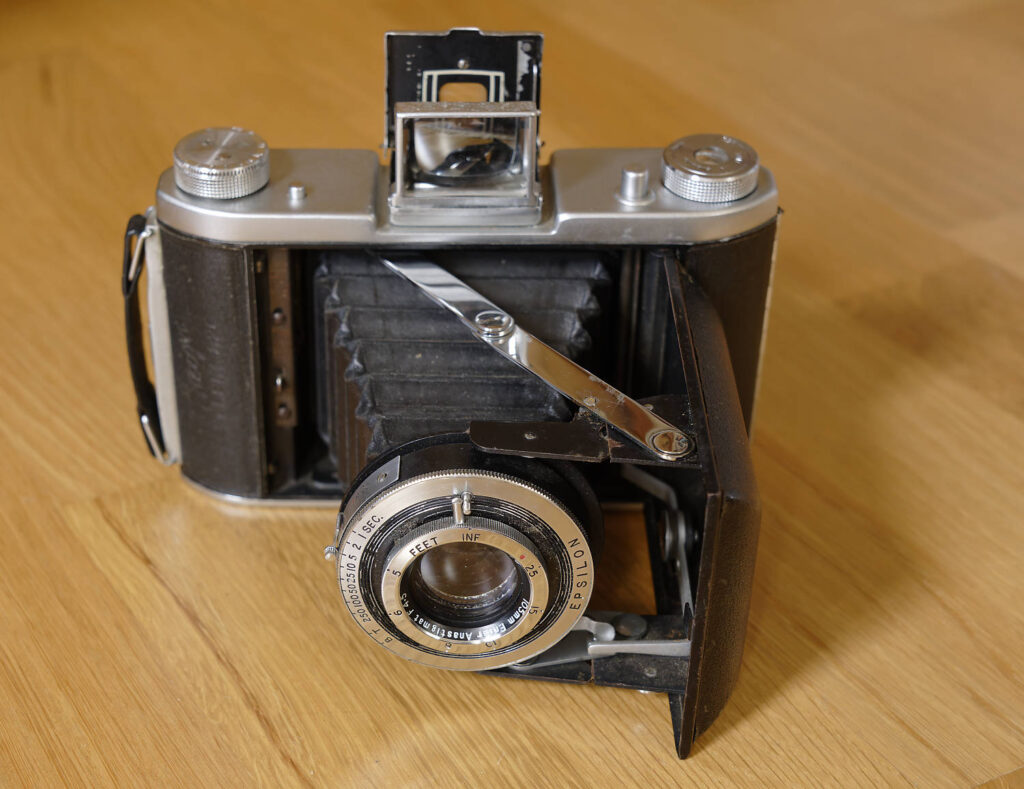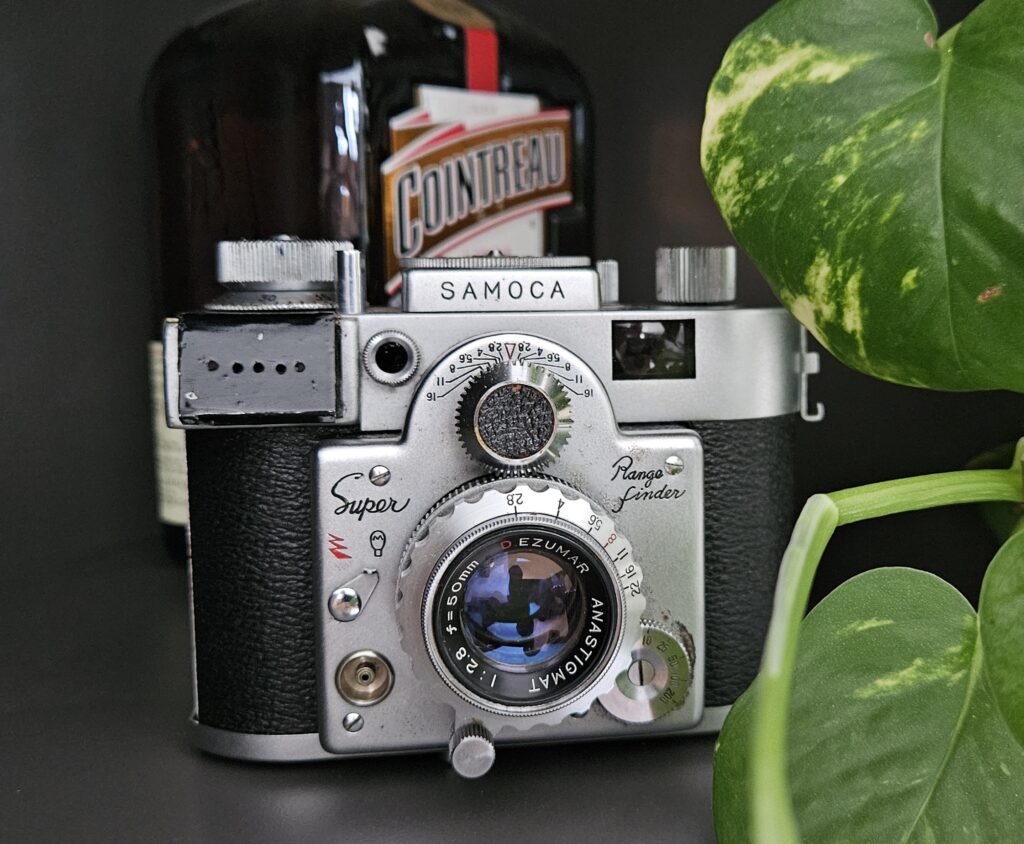In its most simple form there are three elements to a film camera; the lens the camera and the film. Of course in the process of taking a photo, there is also the light entering the camera and the photographer. When all of these things work together perfectly, the result is a wonderful photo. Yet out of all of those things there is one element that arguably has the least effect on the outcome, and that is the camera itself. To many, the camera is regarded as merely the tool. The light travels through the lens, which of course imparts a character, and different films give different results, but a camera is nothing more than an inert tool that if used correctly will have no affect on the resultant image. For me this viewpoint, whilst objectively correct, just lacks a little in depth.
It’s pretty obvious to say, but worth mentioning for the sake of completeness; a cameras working condition is fairly important in ensuring that it’s not going to affect the photo in a negative way. Light leaks, correct shutter speeds, a working light meter etc. (I know some folks like a light leak, but for the sake of simplicity I’m going to ignore that fact for the time being.) All these factors and more are important in making sure a camera doesn’t corrupt the final image. But assuming the camera is actually working to spec, that should be the end of it, there should be no other way for it to affect the photo.
Of course this isn’t the case, as even a fully functioning camera could still cause issues through means of its function. This could be through some technical limitations, for example an offset viewfinder might have an impact on framing when compared to a through-the-lens viewfinder of an SLR. But it’s not just technical limitations that can cause issues, in fact sometimes it’s the opposite; too much function can also cause problems.
One of the biggest factors that eventually turned me off digital and back on to film for my hobby was just how damn complicated digital cameras are. For work (where I still shoot digital) I’ve eventually bought a pair of Fuji’s, the X-Pro1 being the favourite… Those crazy folks at Fuji only went and put a shutter speed dial on the top… Like a “vintage” camera… Amazing! Sarcasm aside, I find myself very capable with a Fuji X-Pro1 and that has a positive effect on my shooting. Despite not being a particularly fast camera, since I know how to use it I don’t miss as many shots as I used to with a similarly specified Panasonic (the model number escapes me). But that’s digital, the complicated realm where the camera affects the outcome by the nature of its chips and programming…
To get back into my comfort zone of talking about film cameras, and what this post is actually supposed to be about…
With film cameras the nature of them should have much less of an affect on the outcome. Yet the same can be said of my Leica M7 as of the Fuji. I couldn’t be any more familiar with how the M7 works now, I know exactly how to use it and so get a much more consistent outcome than I might get from a camera that is new to me. Once learned, a “good” camera will simply get out of the way of the photographer. Through a level of function that is relevant to the photographer or the photography job in hand, this hypothetical “good” camera can almost remove itself from the process altogether by not imposing itself and just letting the photographer achieve what he or she wants.
But does this translate to a better photo, or just a higher hit rate of more OK photos? Personally I think it does make for a better photo, if the photographer can forget the camera is there and concentrate on the vital components such as composition, then an individual image should be improved by a positive working relationship with a camera. If the photographer is distracted by flashing lights or a concern for not having the settings right, said photographers concentration on the important parts of taking a photo won’t be as great as it should be.
So assuming this functional relationship is a positive one i.e. the camera works and the photographer knows how to use it then that should be the end of it…? Well, I’m not so sure about that. There are still other factors that make for a positive relationship with a camera, a major one being the physical form. Being comfortable with a cameras shape and size can be the difference between a photographer taking and not taking a camera out, and after all, in the extreme, if the photographer doesn’t have the camera, the hit rate is likely to be low. But again, this also translates into quality of individual images. A good example might be when a photographer is taking a candid photo of a group of people, if the camera makes the photographer feel distracted by its size and as such conspicuous nature, as before, the concentration on actually taking a photo will be reduced. This distraction could make the photographer fumble settings or simply frame badly. Build quality is also a factor, a camera that a photographer feels is reliable will inspire confidence in it, and therefore less distraction by it.
But further than that still, simply liking or indeed not liking a camera will have an affect. Photography, as a hobby, is supposed to be an enjoyable pursuit. There are many things that will affect how much a photographer enjoys the process of taking a photo, far to many to worry about mentioning, but one of them will always be the camera. Happiness with a camera can come in many forms, but they are all valid. Happiness could be as simple as appreciating a camera for its simple tool-like qualities, or at the opposite end of the scale, for its luxury nature, just because it has a red dot on it, or indeed anything in between; happiness with a camera could even be made up of all any combination of factors that is completely unique to the individual. And however valid or invalid these factors are by anyone else’s standards they still remain factors that breed happiness with a camera. That happiness will always mean a camera is used more, and indeed, potentially used better. Take as an example my M7 and the relationship I have with it, if you read my thoughts on it here, you will read about how I respect it, feel confident with it, I feel invested in it, all sorta of things that make me use it, want to use it, and get better with it as a camera. The knock on effect is bound to be better pictures.
So the camera does have an effect then?
Well, no, not really, objectively speaking the film camera remains a tool. In its most simple form it’s box that controls the period of time the beams of light hit the photosensitive surface of the film. It is true to say that extra features functions can have an effect beyond this, but the effect on the photo is not a direct one. What affects the photo is not the camera itself, but the the skill and capability of the photographer in using that camera and to an equal extent, the relationship the photographer has with said camera.
And I think the latter, the relationship a photographer has with his or her camera is something that is too often either overlooked, or looked upon as less valid. It is an undeniable truth that a camera is a tool, but it is a tool for a creative process. Because of this, both operational and emotional comfort are required for a photographer to get the most out of his tool (camera). And for me, it doesn’t matter the reason for, or in what form the emotional comfort manifests itself, if it is there, the result will be better photos.
And so to this end to my mind, all be it perhaps indirectly, the film camera will always affect the photo, and ultimately be a lot more than just a tool.
Share this post:









Comments
Alexander Craghead on The Film Camera – a Tool or Something More
Comment posted: 10/08/2014
Not to get too deep into this, but everything in photography is merely a "tool," in a sense. But I digress.
I got into medium format about three years ago. (I also shoot 35 still.) My first year was a total failure. I had bought a very good camera, a Mamiya RB67. It was precise, clean, functional, and produced great images. Why was it a failure? It weighed as much as a small car and its shutter firing and film advance systems were in no way intuitive. Just a few extra steps were required, and a bit of faith. You would think that wouldn't be hard to master. It was, however. Those small matters added up to less willingness to carry it on a whim, less confidence I was making the photo I wanted to make, less timeliness with a shutter, and an overall sense of unease. I shot all of three rolls with it in a space of a year, and at the end of the year bit the bullet, sold the kit for 2/3rds what I bought it for, and moved on to another system.
So, yes, the photographers relationship with a camera -- rational or otherwise -- has a profound effect on his or her confidence and the resulting photographs.
Comment posted: 10/08/2014
Francois on The Film Camera – a Tool or Something More
Comment posted: 14/08/2014
After quite a few years of shooting, the best work is the one I did when my "frame" (no pun intended) of mind is the right one to make/take photographs, the camera and lens comes in second. I once read that the best camera is the one you carry with you all the time.
This being said, I would have to say that some manual cameras provide great pleasure just by the beauty of the object, Leica, hasselblad V, Alpa, Plaubel come to mind. I doubt I will find the perfect camera but the search is very pleasant.
Comment posted: 14/08/2014
Kevin Thomas on The Film Camera – a Tool or Something More
Comment posted: 31/05/2016
And yeah, I agree with the thought about searching for the perfect camera - I do t really believe in perfect, but the search is sure fun!
Comment posted: 31/05/2016
Comment posted: 31/05/2016
Comment posted: 31/05/2016